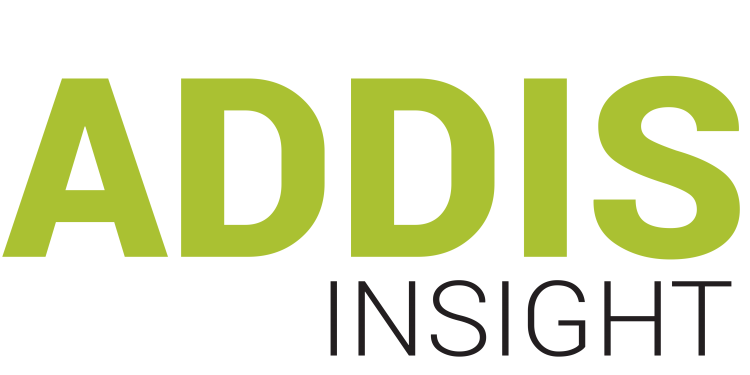Gatkek Kuajien Chuol
I grew up in a country where, people have never been sure what they are fighting for because oftentimes, the cause for which the conflict is fought for is blurred from marginalization based on race, to religious differences.
Since the moment of my birth, I was given a Christian name—Simon, from the Bible—in addition to my first tribal name, since it has become a custom in my community, which is heavily evangelized. Ironically, Christian names are supposed to be given during the baptism of a child or after an adult decides to convert to a new religion, as is the case in most African countries. To this day, I have not been baptized and I do not really associate myself with any religion, beyond ticking the box on a form.
You may wonder why I was given a Christian name. Your guess would probably be that my parents were super religious, but they are not. My dad died a pagan, and my mom, now in her sixties, joined the Christian church just a few years ago after I had already grown to be a man.
What I am trying to say is that this kind of thinking manifested through the actions of my pagan parents imposed on them by the environment they lived in, instilled in me the belief that associating myself with the Christian religion and anything counter to it is outrageous. I should know, because I have observed and seen how some people who have decided to convert to the Islamic religion are viewed with contempt or somehow considered to be mentally unstable, because of all the myths associated with anything Islamic, such as terrorism, sodomy, and racism.
“I once heard that if you join the Islamic religion, a seal is tattooed on your buttock that can never be erased, and that it is a sign that you have, at some point in time, had a same-sex relationship with another man.”
This line has always served as a final straw, preventing people from supporting or becoming a Muslim, and we remain as conservative as one could get in that perfective.
Now, in the wake of the seemingly constant eruption of the Palestine-Israeli conflict, my folks are giving all sorts of analyses, and you can guess which way they are leaning. If your community is as evangelized as mine, it is really hard to think or get an objective opinion based on facts and intellectual reasoning on a topic that touches on one’s religious belief.
But then, there is the wider international community, which is as divided as my community, not to mention the community of nations, which is not only operating to protect their political interests but under fear of reprisal from the strongest states and people. There is a saying that goes, “Two wrongs do not make a right.” Went it comes to Palestine-Israel’s conflict, it seems to be a different story and anything that is considered the the right way of doing things ceases to exist.
There is a saying that goes, “Two wrongs do not make a right.” It is either we do not care about that at the individual level and the world community, especially the powerful nations, do not either.
I have seen how narratives and considerations shift from one conflict to another. Not long ago, the talk of the international community was the Ethiopian conflict, before the Ukraine-Russian war. Then for a brief period, it became Sudan, and after the West managed to rescue their nationals, international attention shifted and went silent, as if the suffering and destruction of the Sudanese nation came to an end with it. Then, there was Niger in West Africa, and I had to do my research just to wrap my head around the buzz. Niger—a very tiny African country—became the center of all the talks, and as I discovered…to my surprise…uh, now I see why.
In the past four or five days, the attention has shifted overnight, as if there are no other problems in the world and the Ukraine-Russia conflict will be talked about less while going forward—my prophecy or anybody’s guess…, choice is yours. Why is that…? Well, there is always a bigger elephant in the room, and when it comes to the Palestine-Israel relationship, there is no single conflict that garners more attention than it.
But why does it seem like everyone is more concentrated on teaching Hamas a lesson or wiping them out of existence? Did their actions demand outages…? Yes, but do innocent Palestinian children and mothers who are subjected to constant shelling deserve that? No.
Then again, how do you wipe out Hamas’s ideology in the heart of people who grew up with the belief that what Hamas has been doing is for their freedom and survival? Isn’t it true that “one man’s rebel is another man’s freedom fighter?”
I am no diplomat, but I know from my knowledge of Public International Law and International Humanitarian Law that indiscriminate killing and shelling, cutting off the flow of basic life necessities such as food, water, and electricity to reach civilians, and kidnapping and torturing civilians are all war crimes. These are the crimes that have been perpetrated by both sides in the past four days.
I am not here to teach anyone a history lesson or to try to solve the Palestinian-Israeli conflict, which has proven to be intractable even for the most learned and seasoned diplomats, famous and important world leaders. I am here to share how I feel about the conflict.
Religion- and ethnic-based conflicts are very tricky, and in the midst of such conflicts, it is difficult to be objective, especially when powerful players are manipulating the situation for their own benefit.
In my opinion and yes —, who cares about it? Freedom of expression I guess gives us all an entitlement no matter how disgusting or stupid we may sound and with that as my defense, I feel that Israel’s response to the latest round of violence has been more retaliatory than defensive though the perpetrators are clear who they are — (Hamas) for starting this later round of conflict.
There must be a better way to deal with Hamas because the casualties reported by various media outlets so far do not appear to be Hamas militants. I do not think that Hamas has ten-year-old recruits in its ranks or occupies every high-rise building located in Palestine’s residential territories.




